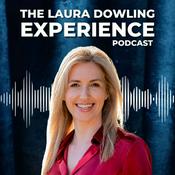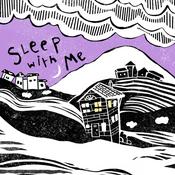126 episodes

December Solstice by Cameron Randall
21/12/2025 | 30 mins.
Bodies Extend Themselves Toward a Breathtaking Absence of Limits Earth.FM has the pleasure and honour to announce a new work with multidisciplinary artist, field recordist, and DJ, Cameron Randall. Cameron’s practice involves composing assemblages of field recordings, electro-acoustic sound, sampling, synthesis, AI models, and digital processing. His previous work has involved sculpture, algorithms, sound, moving image, text, and installation, while his Listening With radio series is broadcast every month on Resonance FM. In this sound piece, Cameron takes us on a journey across the planet with an evocative, intense, surprising, and utterly beautiful sound montage of Earth.FM recordings made during this Solstice season. In his own words: "This piece was created from field recordings made by a number of international field recordists around this time of the year. These recordings are so rich and diverse that I was immensely inspired by their depth and detail. I am interested in the remixing, morphing, and translation of sound—where the audio both retains its original sonic quality and also becomes something new. Every sound you hear in this piece originates from the initial recordings provided to me. The origins of some sounds are obvious; some are more opaque. This is a line I often like to blur and play with. Thank you so much to Melissa Pons for commissioning me to do the piece for Earth.FM." To work creatively with precious natural soundscapes is an exercise of affection and appreciation for our world. We truly hope that his cosmic piece will inspire you in many ways. You can also listen to the original field recordings: Jan Brelih: ‘Cave Entrance in the Balkans’ ‘Dusk Cicadas: Usun Apau Ancient Forest’ ‘Falling Snow in the Forest’ ‘Frog Echoes’ ‘Gentle Waves of Black Sea’ ‘Talking Bamboo’ Serge Bulat: ‘Winds of Onemo’ Rafael Diogo: ‘Where the Wild Things Whisper’ Ezra Gray: ‘Crook tn the River’ ‘Night Time in Sloe Copse Wood’ Tom Kelly: ‘A Sandstorm in Death Valley’ Gina Lo: ‘Rolling Pebbles at the Glass Cove’ Andy Martin: ‘Golden Mantled Howlers at Dawn’ ‘Midnight Insect Chorus Near Corcovado’ Phil Mill: ‘A Very Close Wolf’ Martha Mutiso: ‘Amphibian Chorus’ ‘Chorus in the Amani Nature Forest Reserve’ Melissa Pons: ‘In the Valley – Countryside of Santo Antão’ Melissa Pons and Jocelyn Robert: ‘Ebb Current in Rocky Shore’ Ivo Vicic: ‘Snow Storm with Powerful Thunder’ Gregor Vida: ‘Wind, Squeaking Tree and Light Birds’ George Vlad: ‘Morning in Zimbabwe Village’

Interview: Jakub Orzęcki
17/12/2025 | 1h 16 mins.
“I try to find places that still carry a bit of this [...] feeling that [...] something might be watching me in the place I try to record, or that I may have some problems with finding my way back from the recording spot. [...] [R]ecording there [gives] a chance to capture this raw energy of nature.” In this episode of Wind Is the Original Radio, the Earth.fm podcast, site curator Melissa Pons talks with Jakub Orzęcki. An acoustic ecologist and field recording artist based in Wrocław, southwestern Poland, Jakub was nominated for the Sound of the Year Awards in 2022, in the category of Best Natural Sound. Jakub has made it his mission to highlight the noise pollution increasingly affecting acoustically sensitive areas, and to archive changes occurring in sonic environments. However, as well as exploring Poland’s remote wilderness and underground environments, his work also encompasses the acoustic heritage of the local folklore and traditions which are coming under threat from globalization. With his Polish Soundscapes initiative, Jakub records and assesses the relationship between biophony, geophony, and anthropophony within his homeland’s acoustic environment. In their conversation, Melissa and Jakub discuss a novel way of thinking about his field recording work: the notion that different recordings have flavors. For Jakub, this relates to the emotions he feels in the place where they are made - maybe a flavor of adventure (for example, in relation to soundscapes “tied to [an effortful] expedition”), or the flavor of being “the first person in a place for a very long time”. There’s even the flavor of preparation and analysis, drawing on “old descriptions of [a] place[,] [...] of settlements that once existed there” and grounded in everything from maps of topography, light pollution, and air traffic to Lidar-based terrain models. Jakub also describes a more primeval flavor - one that comes from respect for, or even fear of nature, and which “mix[es] [...] fascination and unease”. This sonic flavor reminds us that, for most of human history, natural environments were so much more unpredictable, stronger, and powerful than we were, whether in the form of forests, rivers, mountains, or swamps. Capturing that sensation tells us how “small [we] are compared to what surrounds [us]”. They also delve into topics including: ‘Sonic nostalgia’: a notion prompted by the disparity between the soundscapes of Jakub’s childhood, spent in his mother’s picturesque home village, and those he experienced when returning to the same area as an adult. From a “quite simple and [...] even [...] old-fashioned” way of life that “harmonized with [the] forces of nature in a perfect way”, the “sounds of [the] river where [he] played with [his] cousins [and the] beautiful sounds of the hay fields” had been overtaken by quite different sounds generated from the sand extraction sites that the riverbanks had become, while the forests were filled with industrial noise The “hidden critical potential” to field recording, which means it “can be a declaration of [the recordist’s] worldview”, akin to a protest song. Jakub explains how a field recordist is able to provide commentary by “reveal[ing] what is in [a particular] soundscape [...], what's disappearing and how human activity shapes it” - in his case, mainly in relation to awareness of noise pollution, but also on broader issues like migration, pandemics, or women’s rights A traditionalist worldview - not politically, but one that embraces “a sensitivity to what's being lost” and an “uneas[iness] about the future”. For Jakub, that manifests as a “longing for sounds that are disappearing”, as well as “a quiet sense of anti-consumerism and anti-globalism”, given the way in which transport, industrialization, and tourism can be detrimental to biophony, geophony, and traditional folk sounds Field recording as an act of care for the soundscapes it preserves, which may encourage others to listen more closely to the world around them. But, also, the challenge of finding the time to listen to in the first place - even though slow, intentional deep listening can “sharpen [...] awareness [and] expand [...] [the] imaginations”: ideal responses to challenging times Species’ changing behaviors in the face of noise pollution - such as marsh frogs or midwife toads, which are increasingly difficult to hear, year by year; songbirds like blackbirds or nightingales changing the pitch of their calls; or whitetail eagles reacting nervously to loud disturbances The need for a healthy balance between natural sounds, human activity, and modern infrastructure - and the difficulty for enabling these elements to coexist, particularly in countries which, like Poland, are developing quickly, and where governments may consider “[...] noise [...] as a part of progress and development [rather] than pollution”. This despite noise being one of the most prevalent forms of pollution, second only to smoke The increase of sedatephobia - fear of silence - particularly among younger people, who, brought up as digital natives, with constant access to online content, can be made to feel anxious or stressed by quiet environments. A possible outcome of this “is the urge to dominate a space with noises, [...] [such as with the] engines of cars and motorcycles [...] tun[ed] [...] to sound even louder”. This speaks to the influence that education could have upon healthy sonic environments: schools could introduce eco-acoustic ecology, communities set up quiet paths in green areas, and, in the home, parents “teach [their] children to respect quiet places and be thoughtful about noise” Jakub’s experience of living with the neurological condition of hyperacusis, which means that particular noises, such as loud or sharp ones, cause long-lasting pain and discomfort in the ears. Yet, in spite of this being so clearly problematic for a sound recordist, Jakub chooses to be thankful, since it has made him “extremely sensitive to [...] everyday sounds” which he never previously gave any consideration to. All this and much more, in a dense and fascinating conversation. You can find out more about Jakub’s work on his website. And, until next time, happy listening.

Interview: Endless Fields pt. 2
04/11/2025 | 1h 3 mins.
“To record well, you have to be listening well.” This episode, part two from Endless Fields 2025, features a further selection of interviews between Earth.fm curator Melissa Pons and her fellow artists-in-residence. You can listen to part one here. One of the co-founders of the event, Stefano Arrigoni, spoke to Melissa alongside Cameron Randall. Stefano is a sound artist and anaesthetist from Italy, who lives in Marseille, France. His practice explores how sound can shape consciousness and open spaces between the inner and the outer. For Stefano, field recording is a form of healing, attention, and surrender. In his compositions and improvisations, recorded sounds trace paths that question authorship and reveal what lies beyond the first layer of hearing. Cameron, a multidisciplinary artist, field recordist, and DJ, composes through an assemblage of field recordings, electro-acoustic sound, sampling, synthesis, AI models, and digital processing. Previous work has involved sculpture, algorithms, sound, moving image, text, and installation, while his monthly series Listening With is broadcasted on Resonance FM. Together, Melissa, Stefano, and Cameron discuss: The origins of their interest in sound. Cameron’s arts background means he approaches the sonic world through a visual lens, while, despite being brought up in a family where music wasn’t a priority, one of Stefano’s earliest memories is of playing guitar with his father. He also describes himself having been a “sound-contemplator” from an early age How important it is, for those who wish to make music but don't have a musical background, to realize that if you “step back and [...] just listen quietly and [...] wait patiently”, inspiration will come. And to remember that an “unmusical mind” can even be beneficial, by “pull[ing] [...] work into a [...] different space” Whether engaging with sound requires more effort than the visual world does - or whether this engagement is “just different”, and simply requires a different kind of attunement The way that Stefano “find[s] sounds that call [to him]”, while Cameron “morph[s] and combin[es] sounds” to create a “quality that's partly in this world and partly in another” How negotiating one particular, secluded environment with a microphone, over an extended period, can increase the experience of intimacy with that environment, enhancing the listening experience Whether listening in such an environment provides opportunities for imagining a better world, and to consider how creative practices can create outcomes that oppose the values of mainstream society How being “acutely” present in a natural environment can allow an appreciation of the “entanglement of species”, and of the “interwovenness” of the bodies of land and water which make up these spaces The way that time seems to “collapse” into a “continual flow” in such spaces - compared to the more structured interaction with time that most of us experience in day-to-day life The importance of remembering that “ecstasy [can] come [...] from very simple feelings like the warm breeze on your skin when you walk at night” How “liv[ing] in a crazy global situation [...], [means that] it's a very mixed feeling to be able to [...] just connect to [...] [things like the sound of a] grasshopper” - but that being in a natural space can also bring “a lot of those conversations to the fore”; taking the time to listen allows more mental clarity than the constant state of agitation within which many of us live. “By listening, we are moving peace energy. [...] It's [...] [a] political act” - so, “make your listening sacred”. Melissa also spoke to Anna Clock, who co-founded Endless Fields with Stefano. Anna’s work as an artist, composer, and musician centers ways of listening, and encompasses theater, film, radio, installation, text, and live music. They also find the time to play the cello and offer affordable, gender-neutral hairdressing in the queer community. In their conversation, Anna talks about: How moving from London, England, to Ireland at young age and entering “a completely different aural environment” led them to start making recordings - something that initially felt distinct from their background in music, before they came to the realization that they were part of the same practice The importance of reciprocity when listening, including the way that music can allow one to connect with both oneself and the world The connection between field recording and deep listening - but also the reluctance, as someone with a cynical nature, to sound too New Age by talking about spirituality in a flippant way The idea that, “If you can't listen to yourself, then you can't listen to anyone [...] or anything else.” Plus, the importance of finding the “special zone” which enables you to “feel comfortable enough to give and receive”... But also the acknowledgement that, if you're never uncomfortable, you're never “reaching towards anything new” How being present in order to listen can be a disconcerting experience, since “it’s not what we're trained to reward ourselves for” in a world built around capitalistic productivity The beauty of “listening [rather than] fighting with time”: a valuable act in a world where “every action you take is a vote for a way of life” The experience of listening as part of a group of people - including how recordings made on a night walk while taking part in one of Pauline Oliveros’ sonic meditations (where the intention is to tread so softly that the feet become ears) captured not only the surroundings but the sound of people listening. You can contact Stefano here, and follow Cameron and Anna. And check back for upcoming episodes! These will feature conversations with Jakub Orzęcki, an acoustic ecologist and field recording artist who lives in Wrocław, Poland, and the Berlin-based sound recordist and electronic music composer Gina Lo.

Interview: Endless Fields pt. 1
09/10/2025 | 1h 18 mins.
Earth.fm curator Melissa Pons was recently invited to attend Endless Fields 2025, as one of seven sound artists-in-residence at Portugal’s Estúdio Yucca, in the Algarve by the Ria Formosa lagoon. This inaugural edition of Endless Fields, organized by Anna Clock and Stefano Arrigoni, was funded by the Department of Applied Social Sciences at the School of Science and Technology (FCT), NOVA University, Lisbon, Portugal, and co-organized by its participants. Local facilitation was by Raquel Castro - curator, producer, film director, and former president of the World Forum for Acoustic Ecology - and Ivo Louro, PhD Candidate in History, Philosophy and Heritage of Science and Technology (at FCT NOVA), and “occasional” sound artist. During the residency, which involved collective listening and recording, sound performances, jams, and an open day, Melissa conducted interviews with her fellow participants. These conversations form the basis of a new two-part episode of Earth.fm’s Wind Is the Original Radio podcast. This, the first part, features Ivo, Iddo Aharony, a composer of electronic and acoustic music and environmental and multimedia compositions, and Xavier Velastín Vicencio - self-described sound designer, composer, technologist, and whale lover. Ivo Louro - who is studying the acoustemologies of Aeolian instruments, examining how they have been used not only to make music from the wind but also to monitor and forecast weather in both scientific and traditional craft settings - discusses: How his lifelong interest in environment, ecology, and science began in childhood, but that it was a university class on acoustic pollution, taken during his environmental engineering training, which opened a new world that linked sound and environment. Later, reading David Toop’s Haunted Weather: Music, Silence, and Memory prompted him to begin making field recordings and engaging with sound theory - starting with R. Murray Schafer’s The Soundscape: Our Sonic Environment and the Tuning of the World and, later, the work of ethnomusicologist Steven Feld, whose field research with the Kaluli people of Papua New Guinea’s Bosavi rainforest culminated in the 1991 album Voices of the Rainforest How his research accidentally led him to wind-driven Aeolian instruments. This includes resonators attached to the sails of traditional Portuguese windmills, which cause them to “hum and howl and [generate a] complex drone”, allowing millers to anticipate weather shifts while also producing a kind of music that accompanied their long, solitary hours. For Ivo, these sounds also resonate with personal memories and family histories, echoing rural soundscapes once common across the Portuguese hills Estúdio Yucca’s location being “almost like an oasis, [but also] very much just a tiny nook inside an area fraught with environmental issues and pressures”, citing the intensive farming and wastewater production associated with the touristification of the Algarve The connection between field recording and travel, and the environmental impacts of that travel, which has led Ivo to mainly make “field recording[s] around the city [...] [to] avoid going out into the country” How soundscape recordings can make “the world completely change” by engaging with unfamiliar species such as crabs: “put a small, sensitive microphone on the sand and [you’ll hear] a full world”. Iddo Aharony is a creative musician and listener who continuously explores the myriad intersections of sound, environment, culture, and technology. His body of work spans a wide variety of instrumentations, media, and interdisciplinary collaborations, from a fully-staged opera to various experimental projects utilizing live electronics, created in collaboration with visual artists, theater directors, scientists, and other musicians. He currently lives in Colorado Springs and is Associate Professor of Music Technology at Colorado College. He talks about: His interest in the way that sounds from our environment can be engaged with in unexpected ways, or how they can surprise listeners The way gradually moving from not really listening to what was around him, to an increased engagement with it, “felt like a door that kept opening more and more” How living in an economic structure that is built around attracting people's attention means that listening to whatever environment in which you find yourself is a wonderful way to be in the world without thinking in terms of functionality or productivity: a small, quiet act of rebellion against that attention economy His fascination with sound since childhood, when, while playing guitar and piano, music was Iddo’s “most private place”, where he was able to most fully be himself. And how music’s emotional resonances acted as a gateway to emotions that he couldn’t otherwise express - leading to the realisation that “the whole world has that potential [for] emotional resonance”. Xavier Velastín Vicencio is a performance and sound artist whose practice spans live art, sound design and composition for theatre, sound installations, sound for video games, sound poetry, algorithmic composition, and digital instrument creation. His work often focuses on utterance, agency, the environment, technology, and the physicality of sound. Xavier is a resident of the Pervasive Media Studios, Bristol, and is currently on a research fellowship with the British Library's Eccles Institute, in London, England. With Melissa, Xavier speaks about: How the ‘liveness’ and ‘presentness’ of the body and the voice “relate to [...] larger questions about bodily autonomy and agency” His obsession with whales and their songs, which began with his realization that the recordings we generally hear have either been edited to make them audible for us, chosen to fit our idea of how whale song ‘should’ sound (avoiding any sounds that are too uncomfortable or challenging), or overlaid with “plinky-plonky” New Age piano music. All of which led to his Edinburgh Festival Fringe show [whalesong]: “a sound play about the noises and voices in the sea [...] [and] a love song to cetaceans”, which was used whale song as an organizing structure His excitement about system design and how organic processes can be embodied within technological systems The pleasure of getting to spend time with other sound artists, as opposed to sound designers whose interests lean towards engineering and the results of sound design: “You know, I'm not that interested in plugins and equipment and [...] how many tracks your REAPER session has [...]; I'm interested in [...] effective moments.” We hope that you enjoy this episode. If you’d like to connect with the participants, you can do so here: Iddo and Xavier. And keep an ear out for part two - coming soon!

Interview: Serge Bulat
10/9/2025 | 1h 24 mins.
“I welcome every noise around me. No matter what it is: a duck, a fish, a deer farting. [...] You invite it all. And [...] this is [...] when you realize [that] every inch of this planet is occupied and we are sharing and coexisting with other species - [so] how can you ever be alone?” In this edition of Earth.fm podcast Wind Is the Original Radio, curator Melissa Pons speaks to Serge Bulat, a multidisciplinary artist whose work - which spans and hybridizes music, exhibitions, immersive games, radio, field recording, and psychological installations - explores the edges of performance, sound, perception, and identity. Serge is from a Moldovan town divided from Ukraine by a river, with family hailing from both worlds. For this reason, borders are “a prominent subject in [his] work”, which seeks to question topics around unity, differences and similarities, and the utopian aspiration of finding “ways to live in a borderless world”. Earlier this year, he released Phonomundi: Selected Recordings of Heritage Sites and Traditions 2017-2024, an album which draws upon years of recording, sharing, and contributing to projects, causes, and stories close to his heart. Phonomundi is also about engaging with “our absolutely disastrous path away from respecting our ears and respecting our culture and respecting our environment”. Against a backdrop of woozy compositions by Serge, featuring nature soundscape recordings, he and Melissa discuss the trials of having a “noisy” mind, which feels like “war in your head” and means that “it’s hard to stop the thinking process” - but which can also lead recordists to “forget about [them]self and [...] start thinking about communities, people that are affected, and [how] that [can be] such an ego drop”. Serge also talks about how ‘now’ is illusory, and his “weird relationship with time”: “I guess it might be some form of synesthesia, because I feel time; I feel its thickness and I feel its qualities.” The flow of time is “one of the driving forces behind [him] doing what [he’s] doing”, while field recording can provide “the nowest now that there can ever be”. He describes how, after experiencing difficulties with conventional mediation, he managed to develop his own system of meditation around listening, where “time stops [...] [and] you find that serenity and that absolute calmness and, for me, this is when I stop the noise”. As he says, “We're all pieces of [...] a bigger body and we're [...] made of the same substance. [...] I always struggle to put anything like that in words [...]. It's easier for me to put it in music. [...] This is what music and sound does [...] and words don't.” Together, Serge and Melissa also address topics including: The relevance of creative work in the face of the climate catastrophe and alarming political developments across the world - including how music, as a precursor to language, can be “a shortcut [...] to somebody's mind, heart and soul”. While also acknowledging the necessity of “dig[ging] deeper [to] understand the issues [with which] we're living” Wanting to make work of significance despite “sonic pollution, [...] over-tourism, over-consumerism, weird politics that make zero sense when it comes to preserving [...] or nurturing stuff that matters and makes us us” - and especially in light of the fact that everything we know is at risk of “disappearing just by [the] pressing [of] one button” Learning to love silence. As Serge says, “We need to reset our hearing. [...] I feel like [silence] makes the ear function better” How it is possible to “feel and hear” bees’ moods from the frequencies of their buzzing, and how bee therapy (‘apitherapy’) - known since the time of Ancient Egypt - can improve anxiety, depression, and even respiratory conditions. “What bl[ows] my mind [about them]”, says Serge, is their “self-sufficiency, community, [and the way that they can] solv[e] a crisis [by] relying on each other” Serge’s experience of an immersive exhibition in Kraków, Into the Darkness, which replicates what it’s like to not be able to see, with blind guides providing insights about their lives, and the equivalence of this to animals replying on different senses than our own (such as spiders and vibrations, or snakes using infrared thermal radiation) The appeal of twilight, “when everything starts becoming blurry” and takes on the quality of a dream, and “the thrill of [darkness] and [the way that] [Serge’s] imagination sometimes takes [him to other] places”. Listen to the whole interview for all this and much more (including the raw terror of Bob from Twin Peaks!). Read more on the recent discoveries from the James Webb Telescope. If you enjoyed this candid and wide-ranging conversation, you can follow Serge on Instagram, Facebook, YouTube, SoundCloud, and Apple Music.
More Health & Wellness podcasts
Trending Health & Wellness podcasts
About Wind Is the Original Radio
Listen to Wind Is the Original Radio, The Laura Dowling Experience and many other podcasts from around the world with the radio.net app

Get the free radio.net app
- Stations and podcasts to bookmark
- Stream via Wi-Fi or Bluetooth
- Supports Carplay & Android Auto
- Many other app features
Get the free radio.net app
- Stations and podcasts to bookmark
- Stream via Wi-Fi or Bluetooth
- Supports Carplay & Android Auto
- Many other app features


Wind Is the Original Radio
download the app,
start listening.







































